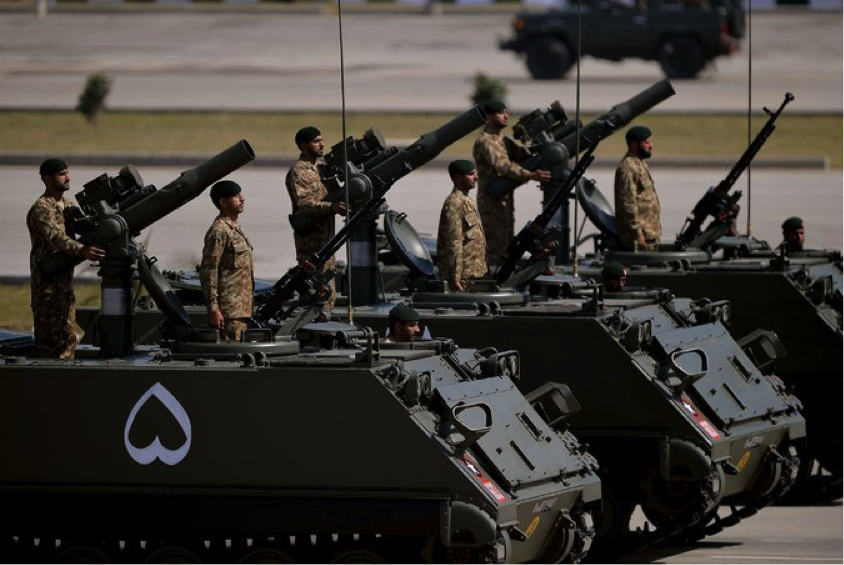
While millions of Mohamed Morsi’s opponents continue to celebrate his ousting, they ignore the long term fallout of the army’s intervention on state and society. The soft coup is fraught with risks and widens the ideological divide between Islamists and secularists. It does not resolve the fierce social and political struggles that have unfolded in Egypt in the two years since the removal of Mubarak. Instead, this latest turn is likely to further polarize Egyptians, already bitterly divided over the identity of the state and the role of the sacred in the political. And it undermines respect for both the peaceful transfer of power and for institutional procedures and rules.
Trust among competing groups will be difficult to revive. Furthermore, the successful coup returns the military to centre stage in Egyptian politics and consolidates its role as a kingmaker and powerbroker. One of the major challenges that faced Egypt and other Arab countries in the wake of their popular uprisings was to subordinate the will of military leaders to civilian rule. This has now been undone. Future governments in Cairo will not dare to defy the military nor try to limit its authority, a serious handicap to democratization. Ironically, the same protesters who cheered Morsi’s ouster by force were often the same ones who opposed the ruling generals (Scaf – the Supreme Council of the Armed Forces) in the post-Mubarak transition period. The opposition asserts that the military had no choice but to respond to the popular will of millions of citizens, whose peaceful demands for Morsi to step down were met with defiance. The opposition ignores the fact, however, that there were other choices available to them.
The military could have introduced political checks and balances that would have fettered Morsi’s hands, using its immense influence to force the secular-leaning opposition and the Islamistled administration to sit down and negotiate a peaceful compromise. This could have included appointing a new competent prime minister palatable to the opposition; an independent attorney general to replace Morsi’s loyalist; and redrafting the constitution to make it more inclusive and tolerant. In fact, these were the initial major demands of the opposition, which only later began to insist that Morsi had to go. There is no denying that Morsi was his own worst enemy, deaf and blind to the gathering storm that ultimately swept him away. He mastered the art of making enemies and blunders, and turned millions of ordinary Egyptians who voted for him into bitter enemies. He was the wrong man to lead Egypt, the most populous Arab state, at this critical revolutionary juncture. Morsi does not have the sensibility, the vision or the political acumen to tackle Egypt’s complex structural challenges.
Instead of delivering on his promises, such as more jobs, greater inclusiveness and alnahda, or renaissance, he went to great lengths to monopolize power and to entrench his Islamist movement in state institutions. There exists a widespread belief among Egyptians of all walks of life that Morsi subordinated the presidency to the Muslim Brotherhood, a fatal error, to a proud nation that calls Egypt Umm al- Dunya (the mother of the world). More than a year after they won commanding parliamentary and presidential victories, the Islamists have proved to be as incompetent as the old secular regime at managing the economy and society. Morsi did indeed inherit a country that was politically polarized and financially bankrupt. These problems, however, grew under his watch; social and economic conditions worsened and political divisions deepened.
Far from improving the economy, the Islamists’ muddled style of governance has exacerbated a structural crisis and caused more hardship and suffering among the poor and the dwindling middle class. What is unfolding in Egypt is a politicalideological struggle over the country’s future. It is not about good and evil, as some would have it. Morsi was too ambitious for his own good, and his movement incompetent, but not evilincarnate. There is a real danger though that the military’s ousting of Morsi will transform this political-ideological clash into a life-and-death struggle. The challenge now is to avoid a repeat of past errors, such as micromanaging the political process from the top down, or persecuting the Muslim Brothers and excluding them from the political arena. Such a course will only reinforce a longheld sense of injustice and victimhood among the Islamists, a recipe for further polarization, instability, and a potentially violent end to Egypt’s democratic experiment. Source: The Guardian




Be the first to comment